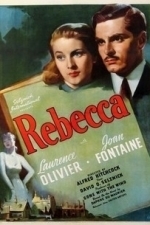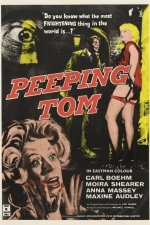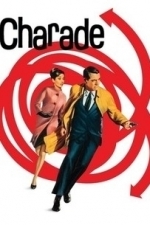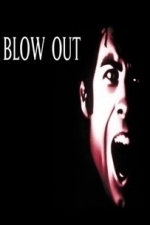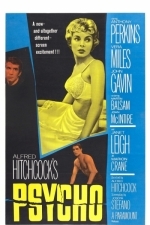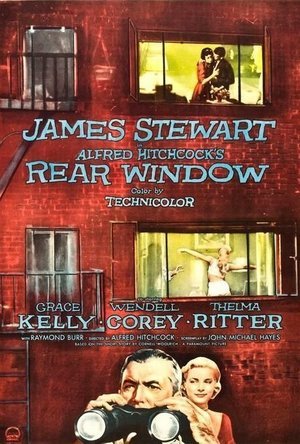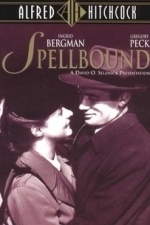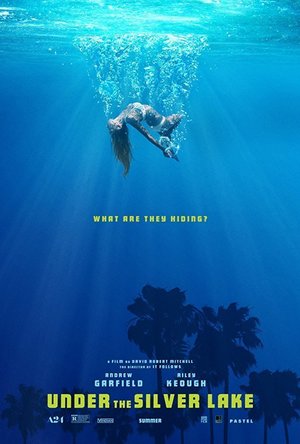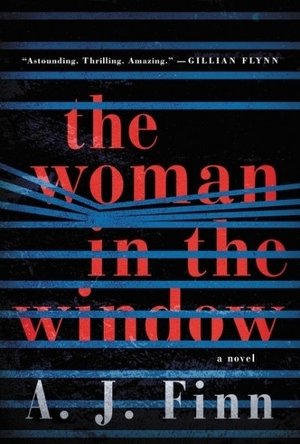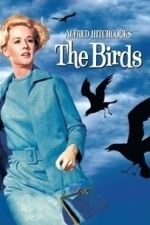Search
Search results
M. Night Shyamalan recommended Rebecca (1940) in Movies (curated)
Jack Reynor recommended Peeping Tom (1960) in Movies (curated)
BankofMarquis (1832 KP) rated Charade (1963) in Movies
Nov 15, 2020
The best Hitchcock film NOT Directed by Hitchcock
What do you get when you cross Cary Grant (NORTH BY NORTHWEST) with Audrey Hepburn (BREAKFAST AT TIFFANY'S) and a cavalcade of interesting faces like Walter Matthau (GOODBYE CHARLIE), James Coburn (THE GREAT ESCAPE), George Kennedy (IN HARM'S WAY) and Ned Glass (WEST SIDE STORY), put them in an exotic European location (this time, mostly, Paris) and have all of them chasing each other for a missing $250,000?
You have the best Alfred Hitchock film NOT Directed by Alfred Hitchcock.
Based on a story by Peter Stone, and Directed by Stanley Donen (SINGIN' IN THE RAIN), CHARADE is a throwback film, that shows the scramble for power and wealth in the beginnings of the cold war in Europe as a woman (Hepburn) searches for answers after her husband shows up deceased and she is instantly besieged by a bevy of mugs looking for some missing loot.
It's a fun and interesting whoddunnit and "whereisit"? With a central plot/love story hinging on the relationship between the Grant and Hepburn characters. And...this is where Charade succeeds greatly as the chemistry between the two is strong, thanks to the smart, forward-thinking idea of having Hepburn as on top of her game as Grant is of his. She is no "damsel in distress", but rather a worthy sparring partner for Grants (and the other mugs).
Of course, it doesn't hurt that Hepburn is dressed - impeccably - by Edith Head in stunning Givenchy outfits all set to the music of Henry Mancini.
Speaking of mugs, they don't get more character-y to look at than Matthau, Coburn, Kennedy and Glass and they all are terrific in their roles as shadowy, sinister figures who are after something that they think Hepburn has...but she just might not have it.
Beautifully shot by Donen in Paris of the early 1960's, this film captures a bygone era and a real feeling of a romanticized and glamorous Europe. This is interesting characters doing interesting things in an interesting way in an interesting place.
And...I'm glad all of this is interesting, for if you stopped for a moment to think about the plot - or the rather languid pace of this film - then Charade would lose quite a bit of it's luster and appeal.
But, fortunately for me, I didn't do that. I sat and immersed myself in these characters, settings and circumstances and was rewarded with a very entertaining evening brought to the screen by master players who know what they are doing.
Letter Grade: A-
8 Stars (out of 10) and you can take that to the Bank (ofMarquis)
You have the best Alfred Hitchock film NOT Directed by Alfred Hitchcock.
Based on a story by Peter Stone, and Directed by Stanley Donen (SINGIN' IN THE RAIN), CHARADE is a throwback film, that shows the scramble for power and wealth in the beginnings of the cold war in Europe as a woman (Hepburn) searches for answers after her husband shows up deceased and she is instantly besieged by a bevy of mugs looking for some missing loot.
It's a fun and interesting whoddunnit and "whereisit"? With a central plot/love story hinging on the relationship between the Grant and Hepburn characters. And...this is where Charade succeeds greatly as the chemistry between the two is strong, thanks to the smart, forward-thinking idea of having Hepburn as on top of her game as Grant is of his. She is no "damsel in distress", but rather a worthy sparring partner for Grants (and the other mugs).
Of course, it doesn't hurt that Hepburn is dressed - impeccably - by Edith Head in stunning Givenchy outfits all set to the music of Henry Mancini.
Speaking of mugs, they don't get more character-y to look at than Matthau, Coburn, Kennedy and Glass and they all are terrific in their roles as shadowy, sinister figures who are after something that they think Hepburn has...but she just might not have it.
Beautifully shot by Donen in Paris of the early 1960's, this film captures a bygone era and a real feeling of a romanticized and glamorous Europe. This is interesting characters doing interesting things in an interesting way in an interesting place.
And...I'm glad all of this is interesting, for if you stopped for a moment to think about the plot - or the rather languid pace of this film - then Charade would lose quite a bit of it's luster and appeal.
But, fortunately for me, I didn't do that. I sat and immersed myself in these characters, settings and circumstances and was rewarded with a very entertaining evening brought to the screen by master players who know what they are doing.
Letter Grade: A-
8 Stars (out of 10) and you can take that to the Bank (ofMarquis)
Edgar Wright recommended Blow Out (1981) in Movies (curated)
BankofMarquis (1832 KP) rated Psycho (1960) in Movies
Oct 29, 2018
An all-time great performance by Anthony Perkins
I'm sure all of you have (at least) heard of the 1960 Alfred Hitchcock film, PSYCHO. And I'm sure most of you have seen (at least in part) the famous "shower scene". But when was the last time you really sat down and watched this film? It had been awhile for me and I walked away with the following impression:
PSYCHO is not all that scary, but it is suspenseful as heck with strong Direction by the "Master of Suspense" and very strong performances anchoring the front and back end of the film.
PSYCHO was billed when it came out as a "Janet Leigh Film". So, to give this review context, let's look at who Janet Leigh was at the time. Before shooting PSYCHO, Leigh was generally cast as the ingenue and/or love interest in mainstream fair such as LITTLE WOMEN, ANGELS IN THE OUTFIELD and HOUDINI (a modern "comp" to her might be someone like Anne Hathaway before she started doing "edgier" work). Leigh did show that there was more to her than just being an ingenue when she played the morally ambiguous wife of Charlton Heston's character in Orson Welles' TOUCH OF EVIL. This film (probably) gave Hitchcock the idea to cast Leigh in PSYCHO.
When 1960's audiences first saw Leigh on screen in PSYCHO, I'm sure that most of them were shocked for, instead of being the pure and wholesome ingenue and wife, she plays the entire first scene in a bra and slip. Her character, Marion Crane, is not morally ambiguous, she is morally corrupt - and when Leigh's character has a chance to act on her moral corruptness, she jumps at the chance. The rest of the first half of this film is Leigh trying to get away with her "crime". She is quite good in this part of the film and was nominated for an Oscar for Best Supporting Actress (deservedly so).
And then...Anthony Perkins shows up.
We are about 45 minutes into the 1 hour and 49 minute film when Perkins' Norman Bates first appears on screen and an interesting thing happened - I couldn't take my eyes off of him. I was enjoying Leigh's performance but instantly pushed her aside (and to the background) when Perkins shows up. Without giving plot away, let me say that there is much, much going behind Norman's eyes and the performance by Perkins strongly suggests this, without going over-the-top or being melodramatic. It is a perfect blend of actor, character and performance and I was shocked that he was not even NOMINATED for an Oscar (Peter Ustinov would win for SPARTACUS). Perkins performance is one of the all-time greats with one of the most interesting and unusual characters - and portrayals - of all time.
Much of the credit for Perkins' and Leigh's strong performances have to go to Director Hitchcock who was at the height of his Directing powers (and power). From the "get go", you can feel the Director's hand in this film, building suspense from scene to scene and shot to shot, first with Leigh's character and, later, with Perkins. Both characters are trying to get away with something and Hitchcock pulls his camera in close to make a point - from a distance all seems good, but when you get up close, you can tell that things are very bad, indeed.
The filming of the famous "shower scene" is well documented and is a Master Class in film and editing. It is worth the price of admission on it's own - as is a scene on a staircase with Private Detective Arbogast, played by Martin Balsam. Hitchcock chooses to heighten the realism in this scene on the staircase by going a more esoteric route (rather than traditional filming of the events) and, one can argue, it doesn't belong in this film. Until, that is, you think about it and then it makes great sense and absolutely, positively has to be in this film in that way.
Another aspect of this film that begs to be mentioned is the Film Score by the great Bernard Herrmann - Hitchcock's regular collaborator. The music in this film punctuates the action on the screen - from the persistent beat and pacing of the opening credits music - driving the audience forward into the action - that does not let go, reaching it's peak and crescendo in the shower scene and then floating down gently like an animal catching it's breath after great activity.
Does the entire film hold up almost 60 years later? Almost...but not quite. Most annoying to me was the "wrap-up" scene at the end where a character spells out everything for the audience. As if we are not smart enough to "get it" - and perhaps the audiences in 1960 weren't.
But that is a quibble for a film that is a classic and is one that, if you have not seen (or seen for awhile), begs to be seen. Check out this film, not for the scares, but rather, the suspense that is generated by Hitchcock and his performers throughout. A GREAT entree into the world of Alfred Hitchcock films.
Letter Grade: A
9 (out of 10) stars and you can take that to the Bank (ofMarquis)
PSYCHO is not all that scary, but it is suspenseful as heck with strong Direction by the "Master of Suspense" and very strong performances anchoring the front and back end of the film.
PSYCHO was billed when it came out as a "Janet Leigh Film". So, to give this review context, let's look at who Janet Leigh was at the time. Before shooting PSYCHO, Leigh was generally cast as the ingenue and/or love interest in mainstream fair such as LITTLE WOMEN, ANGELS IN THE OUTFIELD and HOUDINI (a modern "comp" to her might be someone like Anne Hathaway before she started doing "edgier" work). Leigh did show that there was more to her than just being an ingenue when she played the morally ambiguous wife of Charlton Heston's character in Orson Welles' TOUCH OF EVIL. This film (probably) gave Hitchcock the idea to cast Leigh in PSYCHO.
When 1960's audiences first saw Leigh on screen in PSYCHO, I'm sure that most of them were shocked for, instead of being the pure and wholesome ingenue and wife, she plays the entire first scene in a bra and slip. Her character, Marion Crane, is not morally ambiguous, she is morally corrupt - and when Leigh's character has a chance to act on her moral corruptness, she jumps at the chance. The rest of the first half of this film is Leigh trying to get away with her "crime". She is quite good in this part of the film and was nominated for an Oscar for Best Supporting Actress (deservedly so).
And then...Anthony Perkins shows up.
We are about 45 minutes into the 1 hour and 49 minute film when Perkins' Norman Bates first appears on screen and an interesting thing happened - I couldn't take my eyes off of him. I was enjoying Leigh's performance but instantly pushed her aside (and to the background) when Perkins shows up. Without giving plot away, let me say that there is much, much going behind Norman's eyes and the performance by Perkins strongly suggests this, without going over-the-top or being melodramatic. It is a perfect blend of actor, character and performance and I was shocked that he was not even NOMINATED for an Oscar (Peter Ustinov would win for SPARTACUS). Perkins performance is one of the all-time greats with one of the most interesting and unusual characters - and portrayals - of all time.
Much of the credit for Perkins' and Leigh's strong performances have to go to Director Hitchcock who was at the height of his Directing powers (and power). From the "get go", you can feel the Director's hand in this film, building suspense from scene to scene and shot to shot, first with Leigh's character and, later, with Perkins. Both characters are trying to get away with something and Hitchcock pulls his camera in close to make a point - from a distance all seems good, but when you get up close, you can tell that things are very bad, indeed.
The filming of the famous "shower scene" is well documented and is a Master Class in film and editing. It is worth the price of admission on it's own - as is a scene on a staircase with Private Detective Arbogast, played by Martin Balsam. Hitchcock chooses to heighten the realism in this scene on the staircase by going a more esoteric route (rather than traditional filming of the events) and, one can argue, it doesn't belong in this film. Until, that is, you think about it and then it makes great sense and absolutely, positively has to be in this film in that way.
Another aspect of this film that begs to be mentioned is the Film Score by the great Bernard Herrmann - Hitchcock's regular collaborator. The music in this film punctuates the action on the screen - from the persistent beat and pacing of the opening credits music - driving the audience forward into the action - that does not let go, reaching it's peak and crescendo in the shower scene and then floating down gently like an animal catching it's breath after great activity.
Does the entire film hold up almost 60 years later? Almost...but not quite. Most annoying to me was the "wrap-up" scene at the end where a character spells out everything for the audience. As if we are not smart enough to "get it" - and perhaps the audiences in 1960 weren't.
But that is a quibble for a film that is a classic and is one that, if you have not seen (or seen for awhile), begs to be seen. Check out this film, not for the scares, but rather, the suspense that is generated by Hitchcock and his performers throughout. A GREAT entree into the world of Alfred Hitchcock films.
Letter Grade: A
9 (out of 10) stars and you can take that to the Bank (ofMarquis)
BankofMarquis (1832 KP) rated Rear Window (1954) in Movies
May 14, 2020
Perfect Match of Director and Material
1954's REAR WINDOW is my favorite of all of the Alfred Hitchock films. So when it came time to expose my college-aged children to the works of "the Master of Suspense", it was a "no-brainer" as to which film it would be.
And...they loved it.
Starring "everyman" Jimmy Stewart and the always fabulous Grace Kelly, REAR WINDOW tells the tale of photographer L.B. Jefferies (Stewart) who is laid up in his New York apartment with a broken leg. His only means of entertainment is looking out of the "rear window" of his apartment into the courtyard - and the other apartments (and the people) therein.
This is a treatise on voyeurism and the pairing of this material with a master of film like Hitchcock is a marriage made in heaven. He sets up most of the movie so you are viewing the events as though you are Jefferies - confined to his apartment. Each apartment around the courtyard are their own little viewing boxes. He does a neat, subtle trick in this film. When he pans counter-clockwise, he is just browsing the apartments (like channel surfing on TV). When he pans clockwise - or goes straight to an apartment - he is focusing on that place/story. More often than not, the scenes in the apartments that Jefferies is looking at is mirroring what is going on in the relationship between Stewart and Kelly - sometimes with a sinister undertone. As always, Hitchcock ratchets up the suspense in a way only he can - focusing on a mundane item/thing until it becomes malevolent. This could have easily been a boring/static film, but in Hitchcock's capable hands, there is movement aplenty and the film flows beautifully.
As for the performances, Stewart has never been better as the audience stand-in/everyman who goes from charming scamp just snatching peeks of his neighbors to "peeping-tom" voyeur who is intruding in the private lives of his fellow courtyard denizens. Grace Kelly is just radiant in the way Hitchcock photographs her and in the way that all-time great costumer Edith Head dresses her. She is perfectly made-up and costumed to make her "the most beautiful woman in the world". But...what caught me in this viewing was how good of an acting job she does in this film. In previous viewings I was swept up in the look and feel of the actress. This time, I was taken in by the character and she became the one in this film I was rooting for. Well...either Grace Kelly or the great character actress Thelma Ritter as insurance nurse (and willing accomplice) Stella. She almost steals the movie from the two leads...almost.
All of the elements at play in this film work - acting, costuming, scenic design, cinematography and script - all wrapped up by a Master Director at the top of his game.
If you only watch one Alfred Hitchock film, make it REAR WINDOW. You'll be glad you did.
Letter Grade: A+
10 stars (out of 10) and you can take that to the Bank(ofMarquis)
And...they loved it.
Starring "everyman" Jimmy Stewart and the always fabulous Grace Kelly, REAR WINDOW tells the tale of photographer L.B. Jefferies (Stewart) who is laid up in his New York apartment with a broken leg. His only means of entertainment is looking out of the "rear window" of his apartment into the courtyard - and the other apartments (and the people) therein.
This is a treatise on voyeurism and the pairing of this material with a master of film like Hitchcock is a marriage made in heaven. He sets up most of the movie so you are viewing the events as though you are Jefferies - confined to his apartment. Each apartment around the courtyard are their own little viewing boxes. He does a neat, subtle trick in this film. When he pans counter-clockwise, he is just browsing the apartments (like channel surfing on TV). When he pans clockwise - or goes straight to an apartment - he is focusing on that place/story. More often than not, the scenes in the apartments that Jefferies is looking at is mirroring what is going on in the relationship between Stewart and Kelly - sometimes with a sinister undertone. As always, Hitchcock ratchets up the suspense in a way only he can - focusing on a mundane item/thing until it becomes malevolent. This could have easily been a boring/static film, but in Hitchcock's capable hands, there is movement aplenty and the film flows beautifully.
As for the performances, Stewart has never been better as the audience stand-in/everyman who goes from charming scamp just snatching peeks of his neighbors to "peeping-tom" voyeur who is intruding in the private lives of his fellow courtyard denizens. Grace Kelly is just radiant in the way Hitchcock photographs her and in the way that all-time great costumer Edith Head dresses her. She is perfectly made-up and costumed to make her "the most beautiful woman in the world". But...what caught me in this viewing was how good of an acting job she does in this film. In previous viewings I was swept up in the look and feel of the actress. This time, I was taken in by the character and she became the one in this film I was rooting for. Well...either Grace Kelly or the great character actress Thelma Ritter as insurance nurse (and willing accomplice) Stella. She almost steals the movie from the two leads...almost.
All of the elements at play in this film work - acting, costuming, scenic design, cinematography and script - all wrapped up by a Master Director at the top of his game.
If you only watch one Alfred Hitchock film, make it REAR WINDOW. You'll be glad you did.
Letter Grade: A+
10 stars (out of 10) and you can take that to the Bank(ofMarquis)
Phillip McSween (751 KP) rated Spellbound (1945) in Movies
Jun 13, 2022
Not the First Hitchcock You Should Watch
When Dr. Anthony Edwardes arrives at a mental hospital in Vermont to replace existing hospital director, Dr. Constance Peterson quickly recognizes him as an impostor. The impostor not only comes clean but also fears he may have killed the real Edwards. It is up to the impostor and Constance to find out the truth of what really happened.
Acting: 10
Gregory Peck is one of the shining actors of the 1940’s and his performance as the impostor doesn’t disappoint. His ability to draw in emotion always manages to root my attention into a scene. Ingrid Bergman was also sensational as Dr. Peterson. The chemistry between the two actors carried the majority of the scenes.
Beginning: 3
Characters: 10
The characters give you just enough throughout the story to move things along. While I did hold out hope that some of the characters would be fleshed out slightly better, I didn’t mind working with what the story gave me. I can’t give away too much without fear of spoilers, but i will say that some of the backstories took an interesting turn.
Cinematography/Visuals: 10
Another man that doesn’t disappoint when it comes to cinematography: Alfred Hitchcock. Mans is in his bag with some really creative shots that probably surprised a 1945 audience. From dream sequences to flashbacks, Hitchcocks devotion to his craft is on full display. Definitely a strong suit of this film.
Conflict: 4
Entertainment Value: 7
At one point in my notes I wrote, “The premise is great. I think it’s the execution that is a little off.” You can see glimpses of where Spellbound wanted to take off, but it’s usually shortlived. I hung in there for the creativity of the premise, but that can only get you so far. Too many lulls and letdowns spoiled the overall experience.
Memorability: 4
Pace: 2
The talking. All the damn talking all the time. Good…Lord. The film is STUFFED with dialogue, 111 minutes of talka-talka-talka. The lack of action begins in the first twenty minutes and becomes and ongoing theme, unfortunately. “Show don’t tell” did not apply here.
Plot: 9
Resolution: 10
Despite my disappointment with how slowly things moved, the film was wrapped up nicely. It actually made me even more upset with the movie as a whole because the ending was great potential for what ALL of Spellbound should have been. This film could have done a ton of things better. The ending, though? Solid.
Overall: 69
Not my favorite Hitchcock, Spellbound misses the mark in a number of different departments. I don’t know, it left a bad taste in my mouth and left me unfulfilled. If you’re looking to work through Hitchcock’s filmography, maybe save this one for later on down the road.
Acting: 10
Gregory Peck is one of the shining actors of the 1940’s and his performance as the impostor doesn’t disappoint. His ability to draw in emotion always manages to root my attention into a scene. Ingrid Bergman was also sensational as Dr. Peterson. The chemistry between the two actors carried the majority of the scenes.
Beginning: 3
Characters: 10
The characters give you just enough throughout the story to move things along. While I did hold out hope that some of the characters would be fleshed out slightly better, I didn’t mind working with what the story gave me. I can’t give away too much without fear of spoilers, but i will say that some of the backstories took an interesting turn.
Cinematography/Visuals: 10
Another man that doesn’t disappoint when it comes to cinematography: Alfred Hitchcock. Mans is in his bag with some really creative shots that probably surprised a 1945 audience. From dream sequences to flashbacks, Hitchcocks devotion to his craft is on full display. Definitely a strong suit of this film.
Conflict: 4
Entertainment Value: 7
At one point in my notes I wrote, “The premise is great. I think it’s the execution that is a little off.” You can see glimpses of where Spellbound wanted to take off, but it’s usually shortlived. I hung in there for the creativity of the premise, but that can only get you so far. Too many lulls and letdowns spoiled the overall experience.
Memorability: 4
Pace: 2
The talking. All the damn talking all the time. Good…Lord. The film is STUFFED with dialogue, 111 minutes of talka-talka-talka. The lack of action begins in the first twenty minutes and becomes and ongoing theme, unfortunately. “Show don’t tell” did not apply here.
Plot: 9
Resolution: 10
Despite my disappointment with how slowly things moved, the film was wrapped up nicely. It actually made me even more upset with the movie as a whole because the ending was great potential for what ALL of Spellbound should have been. This film could have done a ton of things better. The ending, though? Solid.
Overall: 69
Not my favorite Hitchcock, Spellbound misses the mark in a number of different departments. I don’t know, it left a bad taste in my mouth and left me unfulfilled. If you’re looking to work through Hitchcock’s filmography, maybe save this one for later on down the road.
Tim McGuire (301 KP) rated Under the Silver Lake (2018) in Movies
Apr 20, 2020
Trippy
417. Under the Silver Lake. A pretty wild mind bender, head scratcher, what the fuck just happened good time! A great recommendation from the Movie Ninja, thank you. We meet Sam, he's kind of a slacker, and about to be evicted from his pad, but he is dating a very nice prostitute. One day hanging out on his patio, he spies a beauty, Sarah, chilling by the pool, and meets her later on while hanging around her dog. And after fun night of chilling, poof, she disappears. And Sam apparently really felt a connection with Sarah over those 2 or 3 hours because this dude goes on a hunt for this girl. Through a crazy couple of dreamlike days we follow Sam through some insane conspiracy theories that lead him through a hobo underground, complete with its own king (Fisher King?) secret sex drug parties, getting crazy to a Brimful of Asha (Everybody needs a bosom for a pillow) and of course the billionaire cults preparing for the afterlife. Think Alfred Hitchcock, Brian DePalma and Stanley Kubrick got together for a movie, and it turned out pretty sweet! Starring a former Spider-Man and a former Venom (didn't recognize him at first, Foreskin is all grown up) But yea, I really liked it, gets pretty crazy!! Check it out! Filmbufftim on FB!
Hazel (2934 KP) rated The Woman in the Window in Books
Mar 11, 2018
A pretty good debut
An interesting psychological thriller full of suspense that although I enjoyed, it took me quite a while in before I connected with the main character, Anna, for some reason; I've been wracking my brains trying to think why but I just can't come up with an explanation and because of this, I don't think I enjoyed it as much as I could have which is a shame because it's a great story and not like anything I have read before.
The story is told completely from Anna's perspective but because of her fragile mental health and the wine and medication concoction, you question whether what she is saying is actually what is happening ... as she herself ends up doing.
I found it quite a sad book overall and I felt a lot of empathy for Anna and her situation but it was also a story of triumph over adversity with a gradual build up to the explosive ending which I found very satisfying.
Overall, a pretty good debut that is not full of the usual blood and violence ... it's definitely a slow burner that builds and builds to a satisfying conclusion.
I think this book would transfer really well to the big screen and I am pleased to note that it is in development as a major motion picture from Fox - it's just a shame that Alfred Hitchcock isn't alive to direct it!
Thanks to the publisher, HarperCollins UK HarperFiction and NetGalley for my copy in return for an honest review.
The story is told completely from Anna's perspective but because of her fragile mental health and the wine and medication concoction, you question whether what she is saying is actually what is happening ... as she herself ends up doing.
I found it quite a sad book overall and I felt a lot of empathy for Anna and her situation but it was also a story of triumph over adversity with a gradual build up to the explosive ending which I found very satisfying.
Overall, a pretty good debut that is not full of the usual blood and violence ... it's definitely a slow burner that builds and builds to a satisfying conclusion.
I think this book would transfer really well to the big screen and I am pleased to note that it is in development as a major motion picture from Fox - it's just a shame that Alfred Hitchcock isn't alive to direct it!
Thanks to the publisher, HarperCollins UK HarperFiction and NetGalley for my copy in return for an honest review.
BankofMarquis (1832 KP) rated The Birds (1963) in Movies
Oct 28, 2020
Strong Suspense by the Master of Suspense
THE BIRDS is often listed amongst the great works of Alfred Hitchcock and I could never really understand the attraction. I thought it was a so-so fright-flick, so when I tripped across it on TV the other day, I started watching it with one eye, figuring I'd flip to something else in a few minutes.
And...then I caught myself getting into it.
Based on the novel by Daphne Du Maurier, THE BIRDS is told in Alfred Hithcock's suspenseful style to elevate a "pulp novel" idea of birds turning on humans to something much more tense than it had any right to be.
Newcomer Tippi Hendren stars as wealthy San Francisco socialite Melanie Daniels who chases suave charismatic lawyer Mitch Brenner (Rod Taylor) north of San Fran to his home of Bodego Bay. Will Melanie be able to win Mitch's heart over the objections of his mother (Jessica Tandy) and ex-girlfriend (Suzanne Pleshette)? We'll never know, for the Birds have their own idea of how this tale will end.
Hitchock, of course, earns his nickname "The Master of Suspense" with this film. He has some long scenes that grow with tension. Whether it's Melanie crossing the Bay in a boat (only to, finally, be attacked by a bird) or Mitch's mother going down a long hallway to find out what happened to a farmer friend of hers to the famous - and famously pulled off - scene of the birds gathering en masse on the jungle gym prior to attacking Melanie and the school children. Hitchcock knows exactly how to raise tension in these scenes and he does so marvelously. Even 56 years later, I found what little hairs I have standing up on the back of my neck and my body bending ever so slightly towards the screen during these scenes.
But...the thing that caught me this time around was the performances of the leads and the way Hitchock lets scenes play out with the actors. I've never been a big Rod Taylor fan, I've always thought he was "fine", but nothing special. He is much more than "fine" in this film. It's probably the best work I've ever seen him do. Jessica Tandy, of course, as the mother is wonderfully cold and distant to begin with and slowly moves to close to madness and then understanding, it is a wonderfully understated performance showcasing a superb theater actress. As is Pleshette's turn as school teacher Annie. Her scenes with Hendren were laced (I'm sure purposely) with an undercurrent of sexual tension between the two female characters.
But...the star of this film is Tippi Hendren, beyond a doubt. Much has been made of the cruelty and misogynistic ways that Hitchock treated and abused Hendren in the making of this film. But her performance shone as the gold-digging, fun loving Melanie who descends into the depths as the film progresses. I've never thought much of her as a performer, but will have to check out other films of hers (most notably, Hitchock's MARNIE).
The special effects - which were cutting edge and earned an Oscar nomination back in the day - are dated, but that adds to the charm of the film (at least for me). I'm sure they "wowed" the audience in 1963, so I'll cut them some slack.
I was pleasantly surprised by the pacing, acting and SUSPENSE of this film. It has held up very well and if you haven't seen THE BIRDS in awhile, I recommend you check it out.
Letter Grade: A-
8 stars (out of 10) and you can take that to the Bank(ofMarquis)
And...then I caught myself getting into it.
Based on the novel by Daphne Du Maurier, THE BIRDS is told in Alfred Hithcock's suspenseful style to elevate a "pulp novel" idea of birds turning on humans to something much more tense than it had any right to be.
Newcomer Tippi Hendren stars as wealthy San Francisco socialite Melanie Daniels who chases suave charismatic lawyer Mitch Brenner (Rod Taylor) north of San Fran to his home of Bodego Bay. Will Melanie be able to win Mitch's heart over the objections of his mother (Jessica Tandy) and ex-girlfriend (Suzanne Pleshette)? We'll never know, for the Birds have their own idea of how this tale will end.
Hitchock, of course, earns his nickname "The Master of Suspense" with this film. He has some long scenes that grow with tension. Whether it's Melanie crossing the Bay in a boat (only to, finally, be attacked by a bird) or Mitch's mother going down a long hallway to find out what happened to a farmer friend of hers to the famous - and famously pulled off - scene of the birds gathering en masse on the jungle gym prior to attacking Melanie and the school children. Hitchcock knows exactly how to raise tension in these scenes and he does so marvelously. Even 56 years later, I found what little hairs I have standing up on the back of my neck and my body bending ever so slightly towards the screen during these scenes.
But...the thing that caught me this time around was the performances of the leads and the way Hitchock lets scenes play out with the actors. I've never been a big Rod Taylor fan, I've always thought he was "fine", but nothing special. He is much more than "fine" in this film. It's probably the best work I've ever seen him do. Jessica Tandy, of course, as the mother is wonderfully cold and distant to begin with and slowly moves to close to madness and then understanding, it is a wonderfully understated performance showcasing a superb theater actress. As is Pleshette's turn as school teacher Annie. Her scenes with Hendren were laced (I'm sure purposely) with an undercurrent of sexual tension between the two female characters.
But...the star of this film is Tippi Hendren, beyond a doubt. Much has been made of the cruelty and misogynistic ways that Hitchock treated and abused Hendren in the making of this film. But her performance shone as the gold-digging, fun loving Melanie who descends into the depths as the film progresses. I've never thought much of her as a performer, but will have to check out other films of hers (most notably, Hitchock's MARNIE).
The special effects - which were cutting edge and earned an Oscar nomination back in the day - are dated, but that adds to the charm of the film (at least for me). I'm sure they "wowed" the audience in 1963, so I'll cut them some slack.
I was pleasantly surprised by the pacing, acting and SUSPENSE of this film. It has held up very well and if you haven't seen THE BIRDS in awhile, I recommend you check it out.
Letter Grade: A-
8 stars (out of 10) and you can take that to the Bank(ofMarquis)
